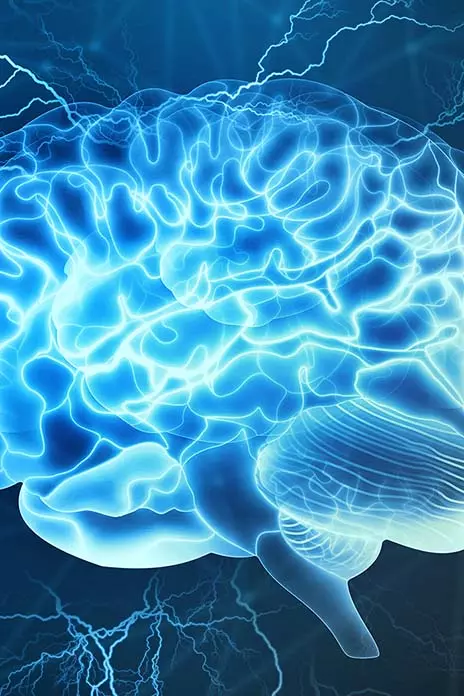Your brain is a complicated and vital organ. When it undergoes trauma, it can affect every part of your life. One type of trauma your brain can encounter is an anoxic injury. But exactly what is an anoxic brain injury?
Like the other major organs in your body, the brain needs oxygen to survive. An anoxic brain injury is a catastrophic and potentially fatal injury characterized by the brain’s complete deprivation of oxygen. This feature distinguishes anoxic injuries from hypoxic brain injuries, in which oxygen flow to the brain is reduced.
Types of Anoxic Brain Injuries
Anoxic brain injuries can be classified as follows according to how the brain’s oxygen supply is disrupted:
- Anemic Anoxic Injuries: Occur when the blood reaching the brain does not contain adequate amounts of oxygen
- Toxic Anoxic Injuries: Involve toxic substances that interfere with the body’s ability to process, use, and deliver oxygen to the organs
- Stagnant Anoxic Injuries: Happen when the flow of oxygenated blood is blocked from reaching the brain
- Anoxic Anoxic Injuries: Occur when you are in an environment that does not contain sufficient oxygen
These different types of anoxic brain injuries merely describe the circumstances that can deprive your brain of oxygen. The symptoms and effects of each type of anoxic brain injury are the same. Specifically, each type of anoxic brain injury has the capacity to kill you or result in nonfatal but severe complications.
Effects of Anoxic Brain Injuries
Are you still wondering precisely “what is an anoxic brain injury?” Understanding this type of trauma requires you to be familiar with how these injuries manifest. The sooner that you receive medical care and can have the flow of oxygen-rich blood restored to your brain, the better your overall prognosis will be. Some of the early anoxic brain injury symptoms include:
- Headaches and seizures
- Difficulty seeing objects and processing what they observe
- Other challenges with perceiving things through the senses
- Alterations in the way you sleep
- Trouble with coordination and balance
- Loss of consciousness
Permanent damage to your brain can begin to occur after just four minutes of oxygen deprivation. Some examples of such permanent damage include:
- Difficulty concentrating
- Impairment to your judgment
- Trouble remembering things and short-term memory loss
- Challenges with motor skills
- Changes in your personality and mood
The longer your brain is deprived of oxygen, the greater and more long-lasting these and other symptoms can become. Cases of severe anoxic brain injuries can leave the victim in a persistent vegetative state and unable to care for themselves or look after their needs independently.
An anoxic brain injury is not diagnosed on the basis of symptoms alone. Doctors routinely use medical imaging, such as MRIs, to come to a definitive diagnosis.
Common Anoxic Brain Injury Causes
Just as many symptoms can suggest you might be suffering from an anoxic brain injury, many situations can lead you to sustain one of these catastrophic injuries. The list of these possible causes includes:
- Drowning or near-drowning accidents
- Carbon monoxide poisoning or exposure to other toxic fumes
- Choking
- Having your trachea compressed, such as when you are strangled
- Taking of certain drugs, like opioids
Certain medical conditions can lead to anoxia of the brain, including a stroke and cardiac arrest. In addition, certain disorders of the lungs can interfere with your body’s ability to adequately deliver oxygen to your organs via your blood, which can lead to hypoxia or anoxia.
Liability and Legal Considerations for Anoxic Brain Injuries
Anoxic brain injuries are not always the result of accidents. Mistakes and errors by other individuals can cause you or your loved one to sustain one. For example, a careless boater may cause you to fall overboard, hit your head, and suffer a near-drowning accident. Similarly, a negligent repair person might inadvertently allow carbon monoxide to build up in your home.
Even professionals like doctors and nurses can cause their patients to suffer anoxic brain injuries. Failing to monitor your vital signs during surgery where you are under general anesthesia can cause your oxygen levels to drop dangerously low.
In the same way, a doctor who prescribes certain medications to you can carelessly cause an anoxic brain injury if those medications have an adverse reaction that you’re not properly warned about. Individuals who sustain an anoxic brain injury often have questions about their legal rights, such as:
Is Someone Legally Responsible for My Anoxic Brain Injury?
Possibly, yes. With the question of “What is an anoxic brain injury?” now answered, the next query becomes whether someone else caused that injury. Consider whether another person acted in a careless way and did not give due regard for your safety. Did you suffer an anoxic brain injury as a result? If so, that person can be liable to you for damages.
What Damages Could I Recover?
If someone is legally liable for your injuries, you could recover the costs associated with diagnosing, treating, and managing any anoxic brain injury symptoms you sustained. If you are unable to work or cannot return to your previous job, your damages award could also include the wages you might have earned had you not been hurt.
You could also be entitled to recover non-economic damages for mental and emotional suffering.
How Do I Get Started With My Case?
Retaining a medical malpractice lawyer who understands the complex nature of brain injuries can help you initiate a claim, especially when the allegedly careless person is a doctor or medical professional.
What to Do After Suffering an Anoxic Brain Injury
You may be entitled to compensation if you or a loved one has sustained an anoxic brain injury and suffered harm. A catastrophic injury lawyer from Dunn Sheehan is ready and available to help guide you through the civil justice system. Let our experienced attorneys gather evidence, argue your case, and defend your rights against those responsible for your injuries.

